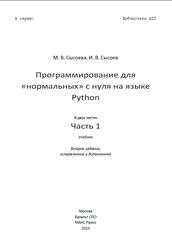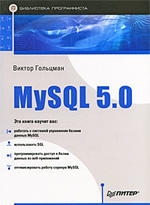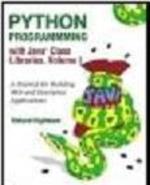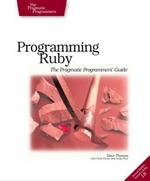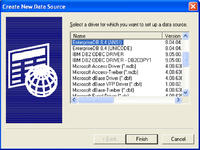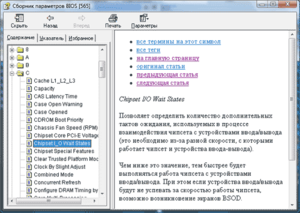Disclaimer:
Contents of this page are indexed from the Internet. All actions are under your responsability. Email us to report illegal contents or external links and we'll remove them immediately.
Author: Michael J. Tobler.
Table of Contents
Preface 1
About the Technical Reviewer 1
Acknowledgments 1
Tell Us What You Think! 1
Part I: Getting Started 2
Chapter 1 Introduction to Linux 3
The Purpose of This Book 3
What Is Linux? 4
Linux: Its Past and Present 4
The Driving Forces Behind Linux 5
How Is Linux Used? 5
The Future of Linux 6
Linux Distributions 6
Sources of Linux Information and Documentation 7
Summary 9
Chapter 2 Installing Linux 10
Requirements Checklist 10
Planning Your Installation 17
Distribution-Specific Installations 20
Summary 36
Chapter 3 Using Linux 37
Linux Startup 37
Linux Shutdown 37
Logging In to Linux 39
Logging Out of Linux 39
Managing User Accounts 39
Moving Around in Linux 42
Using Files and Directories 50
Some Basic Commands 55
Summary 60
Chapter 4 Installing X Windows 61
XFree86 Defined 61
Installing XFree86 62
Configuring XFree86 66
Summary 83
Chapter 5 Using X Windows 84
Overview of the Graphical Environment 84
Navigating X 85
Window Managers 86
Exploring the Graphical Environment 88
KDE 88
GNOME 103
Summary 111
Part II: Configuration 113
Chapter 6 Network Configuration 114
TCP/IP Overview 114
Hardware Requirements 117
Configuring TCP/IP 118
The rc Files 121
Testing the Network 127
Summary 129
Chapter 7 Hardware Configuration 130
Overview 130
Hard Drives 130
Modems 132
Mouse 132
Peripheral Computer Interface (PCI) 133
Video Cards 133
Serial Ports 135
Sound Cards 140
Summary 143
Part III: Linux Services 144
Chapter 8 Email Services: SMTP and POP 145
Overview 145
Comprehending Electronic Mail 145
MUA Programs 148
Using MUAs 148
The sendmail Package 159
Summary 166
Chapter 9 File Transfer Protocol (FTP) 167
FTP Overview 167
FTP Commands 168
Using FTP 173
Configuring an FTP Server 178
Summary 181
Chapter 10 Domain Name Service (DNS) 182
DNS Overview 182
DNS Configuration 186
Summary 195
Chapter 11 Network Information Service (NIS) 196
Overview 196
The NIS Model 197
Structuring NIS 198
Configuring NIS 199
Additional NIS Commands and Files 206
Summary 209
Chapter 12 Network File Service (NFS) 210
Overview 210
NFS Design and Architecture 211
NFS and Linux 214
Using the NFS Client 221
Optimizing NFS on Low-Bandwidth Connections 225
Summary 225
Chapter 13 Dial-Up Networking Services: SLIP and PPP 226
Serial Line Internet Protocol (SLIP) 226
Point-to-Point Protocol (PPP) 238
Summary 247
Chapter 14 UNIX-to-UNIX Copy Program 248
UUCP Overview 248
Basic UUCP Configuration 248
A UUCP Session 258
Summary 262
Chapter 15 Samba: Merging Linux and Windows 263
Overview 263
Obtaining and Installing Samba 264
Configuring Samba 267
Executing Samba 278
Using smbclient 280
Summary 283
Chapter 16 Apache Web Server 284
Apache Overview 284
Choosing an Apache Package 285
Obtaining and Installing Apache 285
Apache Runtime Configuration 294
Starting and Stopping the Server 295
Apache Log Files 297
Special-Purpose Environment Variables 297
Apache's Handler Use 298
Summary 299
Chapter 17 Internet News Service 300
Overview 300
Basic Usenet Mechanics 301
Common Usenet Terms 309
NNTP Protocol 310
Configuring the NNTP Server 318
Summary 319
Chapter 18 Print Services 320
Print Overview 320
Printer Preliminaries 320
Configuring Print Services 323
Summary 335
Part IV: System Administration 337
Chapter 19 The Tools 338
Overview 338
Configuration, Maintenance, and Management Tools 338
Productivity Tools 365
Summary 366
Chapter 20 Booting and Shutdown 368
Overview 368
The init Process 369
Using LILO, the Linux Loader 372
Using LOADLIN, another Linux Loader 374
Emergency Boot Floppy Disks 376
Summary 376
Chapter 21 Security 378
Overview 378
Physical Security 379
Threats to Security Caused by Social Engineering 382
Authentication 382
File Security 386
Network Access 387
Summary 391
Chapter 22 Managing Accounts 392
Overview 392
Managing Users 392
Managing Groups 398
Summary 400
Chapter 23 Other Administrative Tasks 401
Overview 401
Root Account 401
Rotating User Passwords 402
System Backup and Restoration 403
Using cron and crontab Files 408
System Monitoring 409
Summary 415
Part V: Quick Reference 416
Chapter 24 Utility Programs 417
Overview 417
Online Help 417
Process Commands 420
Summary 425
Chapter 25 Regular Expressions 426
Overview 426
Pattern Matching 426
Metacharacters 427
Escaping 435
Whole Words 436
Summary 437
Part VI: Appendixes 439
Appendix A Other Sources of Information 440
Books 440
Magazines 441
Usenet Newsgroups 442
Mailing Lists 446
Linux Web Sites 447
Linux FTP Sites 454
Appendix B Common Questions 456
Overview 456
So What Is Linux? 456
What Distributions of Linux Are Available? 456
What Processors Does Linux Run On? 461
What Are Some of the Requirements of Linux? 461
Where Can I Get Linux? 462
Where Can I Find Software for Linux? 462
Can I Access Data on Drive Types Other Than Linux? 463
Can I Run Software Written for Other Operating Systems? 463
Where Can I Get Linux Information on the Internet? 463
Are Disk and File Utilities Available for Linux? 464
What Do I Do If I Forgot the root Password? 466
How Can I Share Linux/Windows Printers and Filesystems? 466
How Can I Mount a Windows95 Filesystem? 466
Do Viruses Exist on Linux? 466
How Are Linux Passwords Encrypted? 466
How Large Can a File Be Under Linux? 467
Are There Comparisons of Linux to Other Operating Systems? 467
What Is the Legal Status of Linux? 467
Do I Need to Repartition to Use Linux? 467
Can I Get Linux Preinstalled on a New Computer? 467
Бесплатно скачать электронную книгу в удобном формате, смотреть и читать:
Скачать книгу New Riders, Inside Linux - fileskachat.com, быстрое и бесплатное скачивание.
Скачать pdf
Ниже можно купить эту книгу, если она есть в продаже, и похожие книги по лучшей цене со скидкой с доставкой по всей России.Купить книги
Скачать с depositfiles.com
Скачать с letitbit.net
Дата публикации:
Хештеги: #New Riders :: #Inside Linux :: #программа :: #программирование :: #книга :: #скачать :: #бесплатно
Смотрите также учебники, книги и учебные материалы:
Следующие учебники и книги:
Предыдущие статьи:

